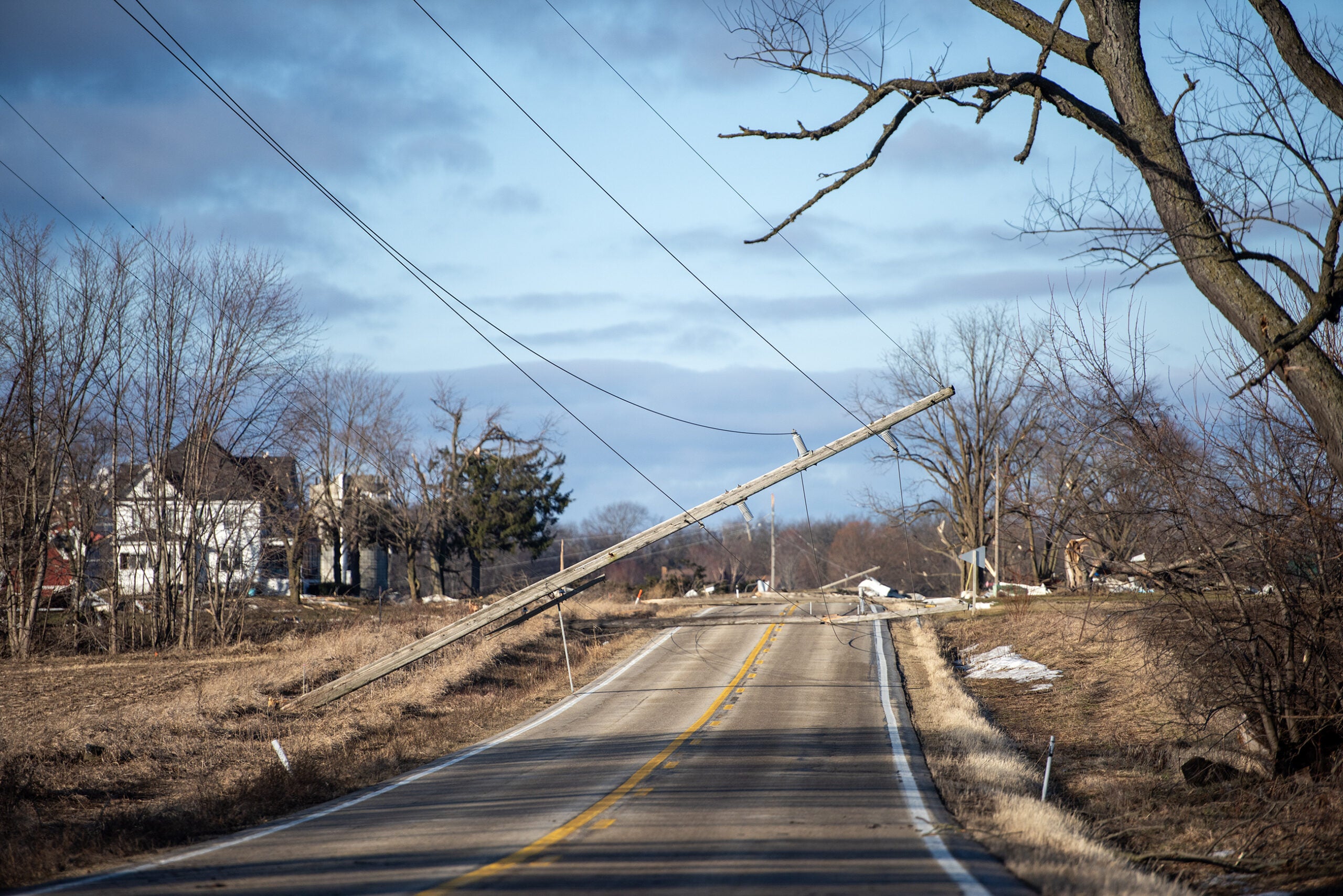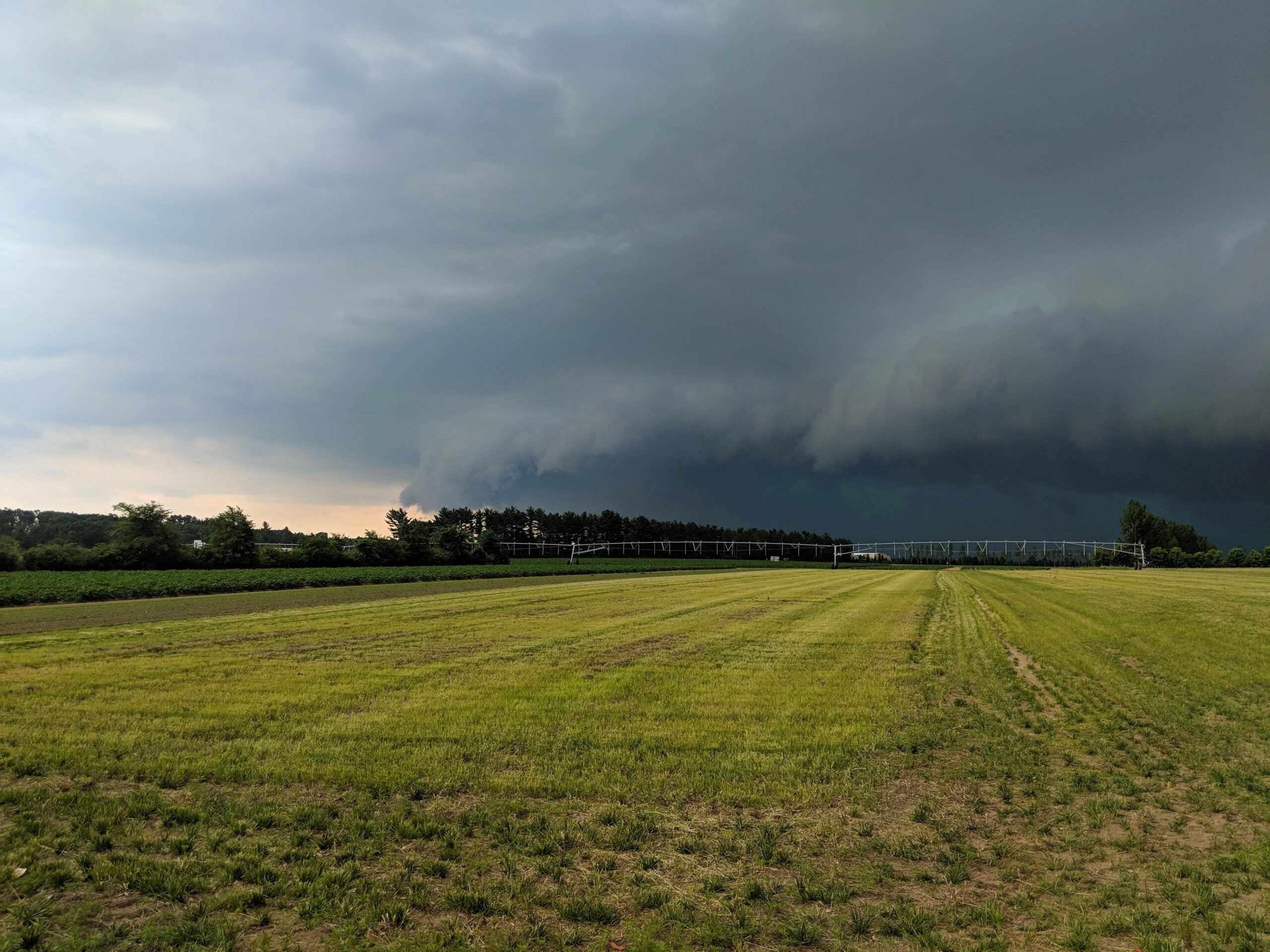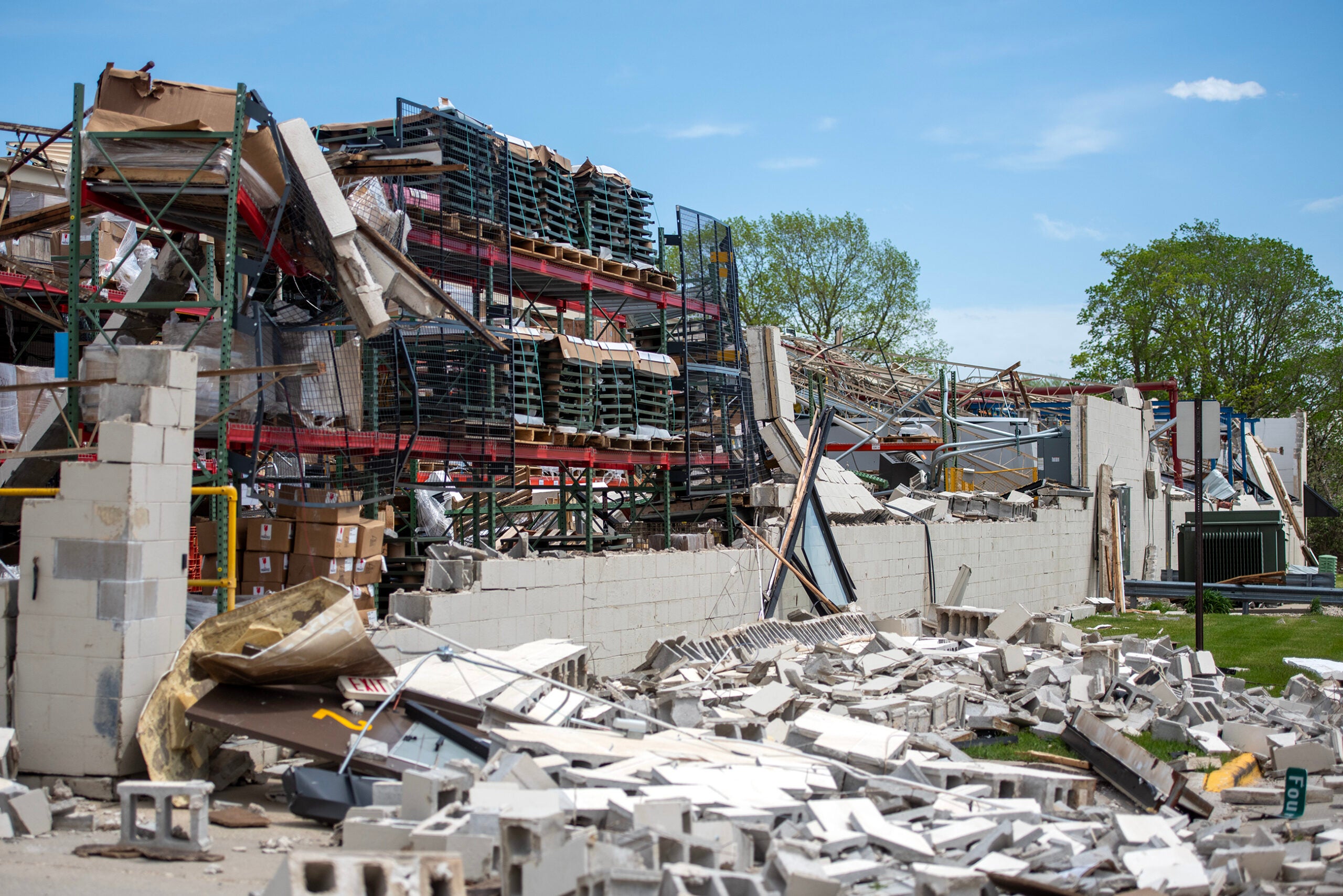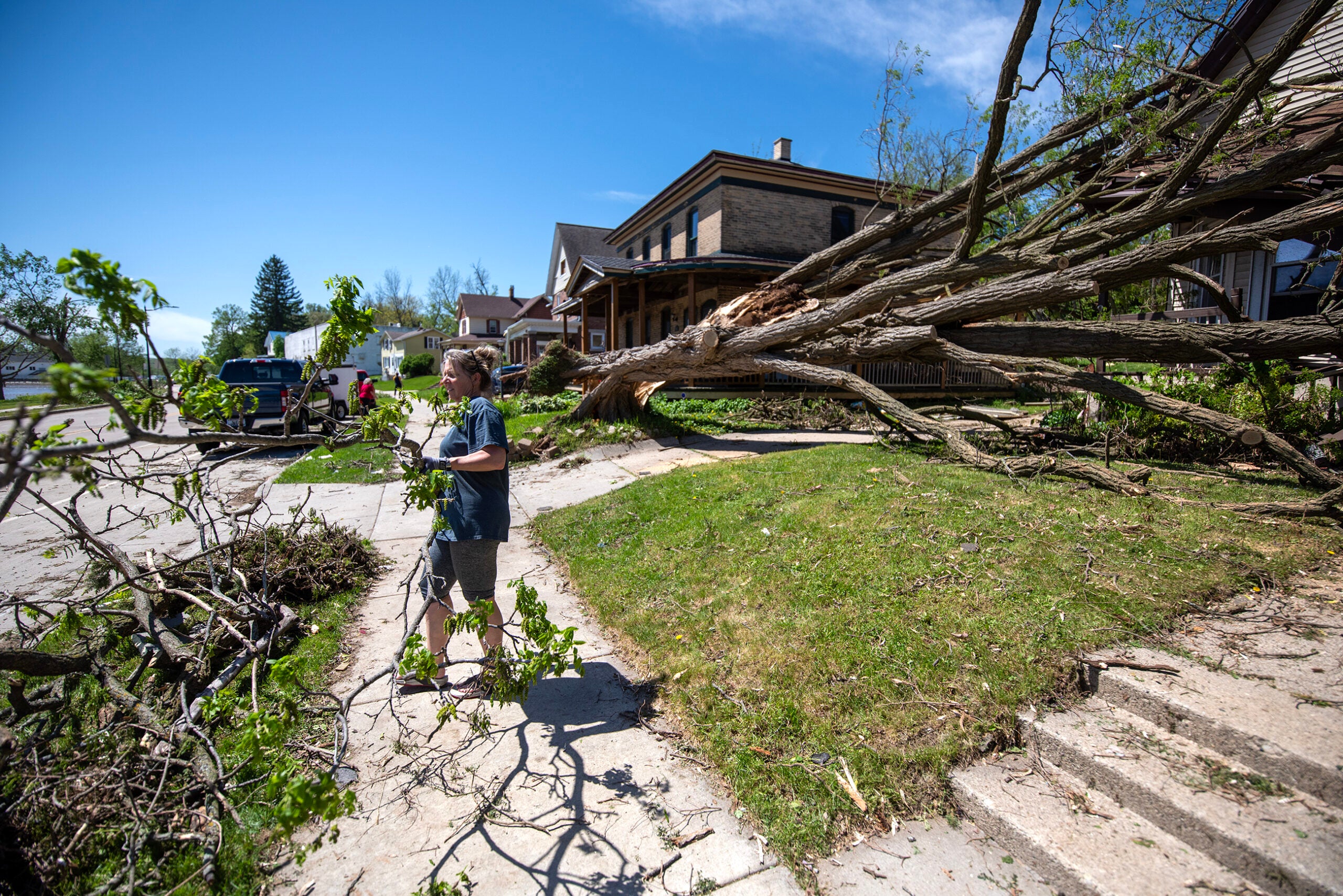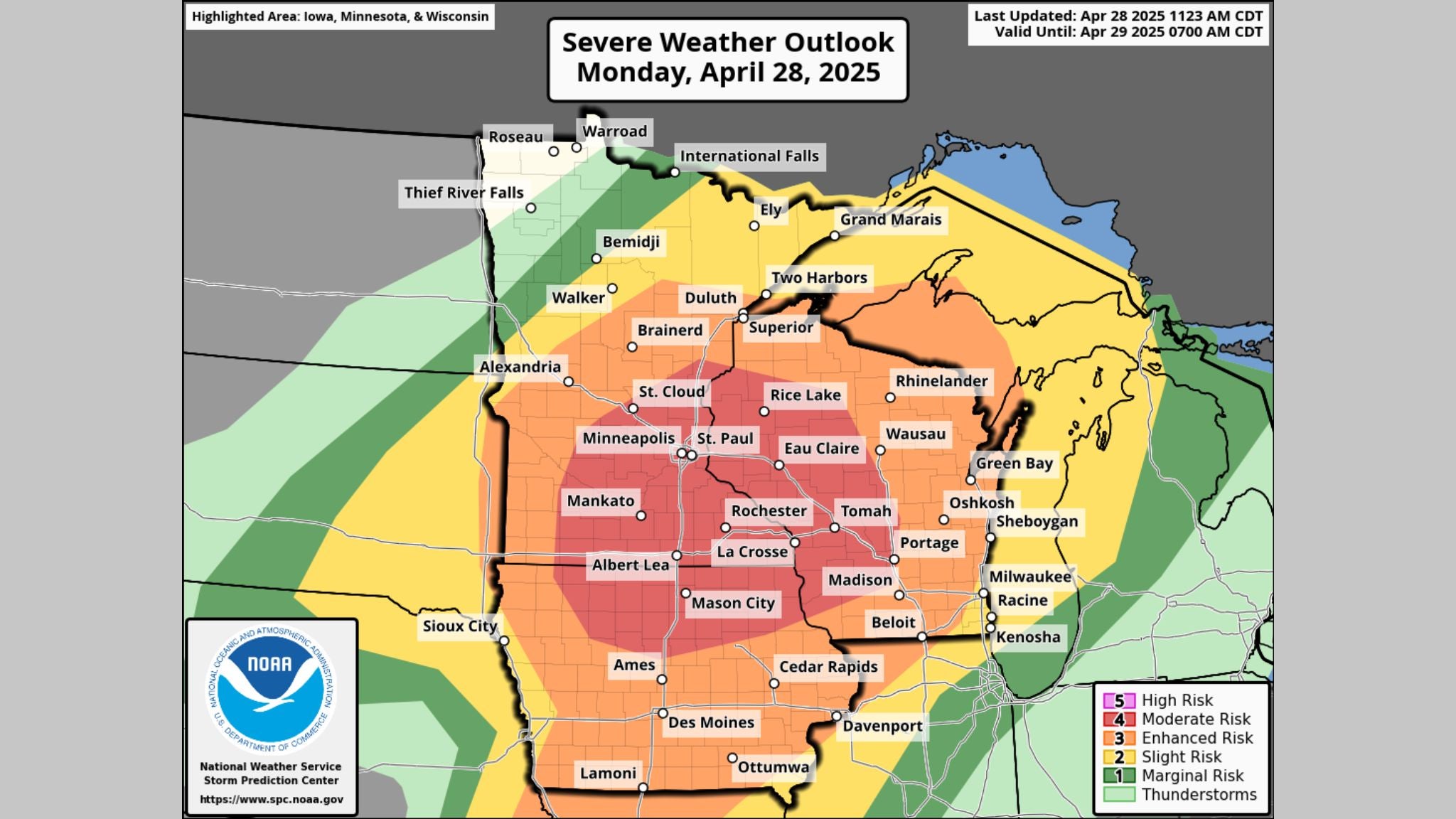Crews continue to survey the damage after winter tornados in southern Wisconsin left injuries, property damage and power outages in their wake.
They were the first tornados ever recorded during the month of February in Wisconsin, according to data that goes back to 1948, said Taylor Patterson a meteorologist with the Milwaukee/Sullivan branch of the National Weather Service.
A tornado touched down along the border between Dane and Rock Counties near Edgerton, the National Weather Service confirmed just after 6 p.m. on Thursday. It coincided with severe thunderstorms, including rain, hail and high winds throughout southern Wisconsin.
News with a little more humanity
WPR’s “Wisconsin Today” newsletter keeps you connected to the state you love without feeling overwhelmed. No paywall. No agenda. No corporate filter.
As of Friday afternoon, the National Weather Service classified a tornado that hit near Evansville as a high-end EF2 tornado. The NWS also determined that a second tornado, classified as a less powerful EF1, formed Thursday night near Albany.
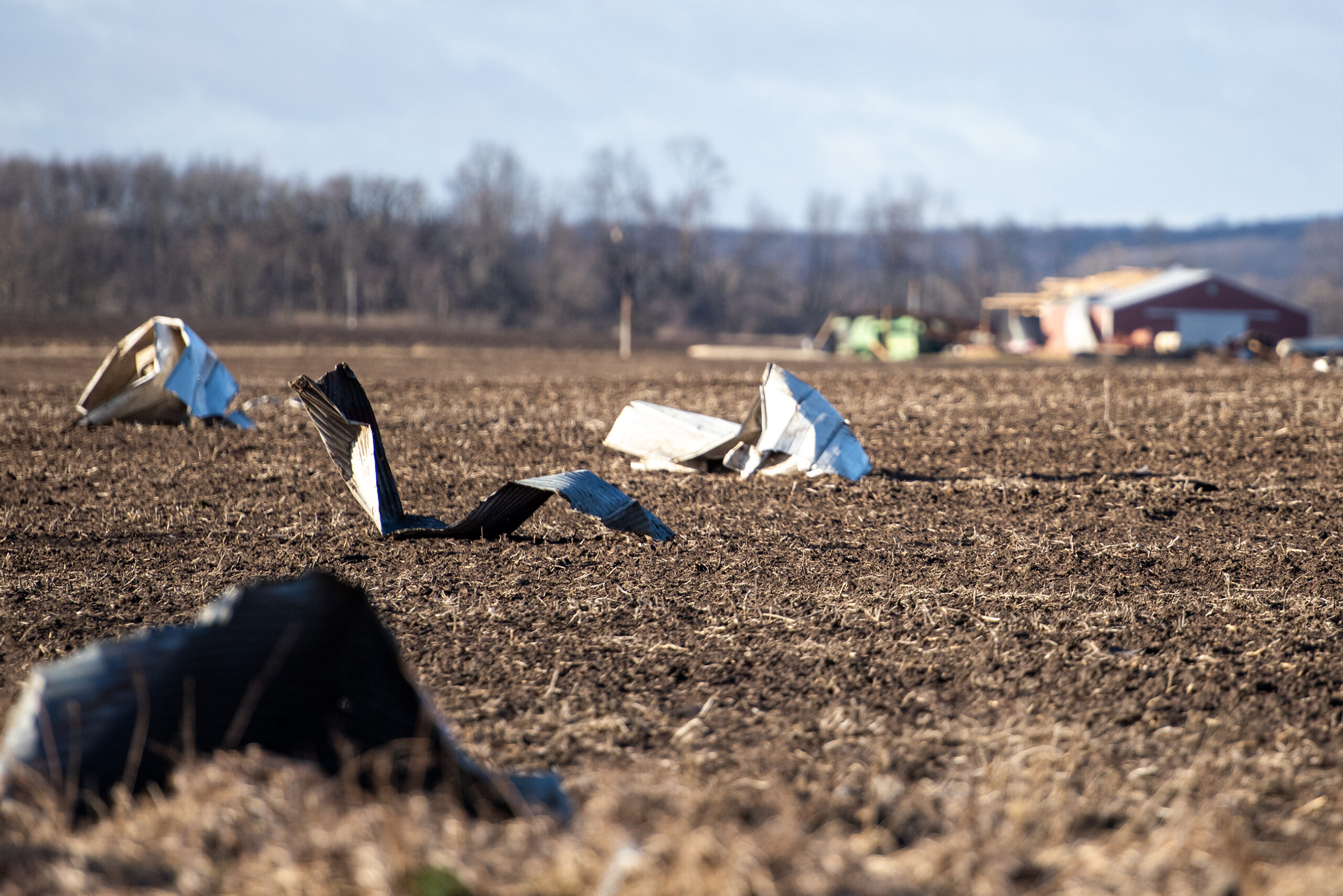
Reports of minor injuries, homes without roofs
Minor injuries were reported from the storm, according to a news release from the Rock County Sheriff’s Office and Rock County Emergency Management.
Thousands of people lost power Thursday night, although most have since had their electricity restored, according to outage maps from Alliant Energy and We Energies.
As of Friday morning, the NWS was receiving the highest concentration of damage reports from an area south and east of Evansville, Patterson said.
“Everything from uprooted and snapped trees and snapped power poles up to some homes missing their roof,” Patterson said, noting that NWS crews continue to take reports of the destruction.
As of Friday afternoon, officials knew of at least 20 homes that suffered moderate to severe damage, said Rock County Sherrif Curt Fell, who called the property damage “devastating.”
“Personally, I find it kind of amazing, nobody got more seriously hurt,” Fell said, noting that only one person needed to be transported by ambulance. “For that aspect, I couldn’t be more thankful. And, as far as a community response, we couldn’t have asked for anything better in this area.”
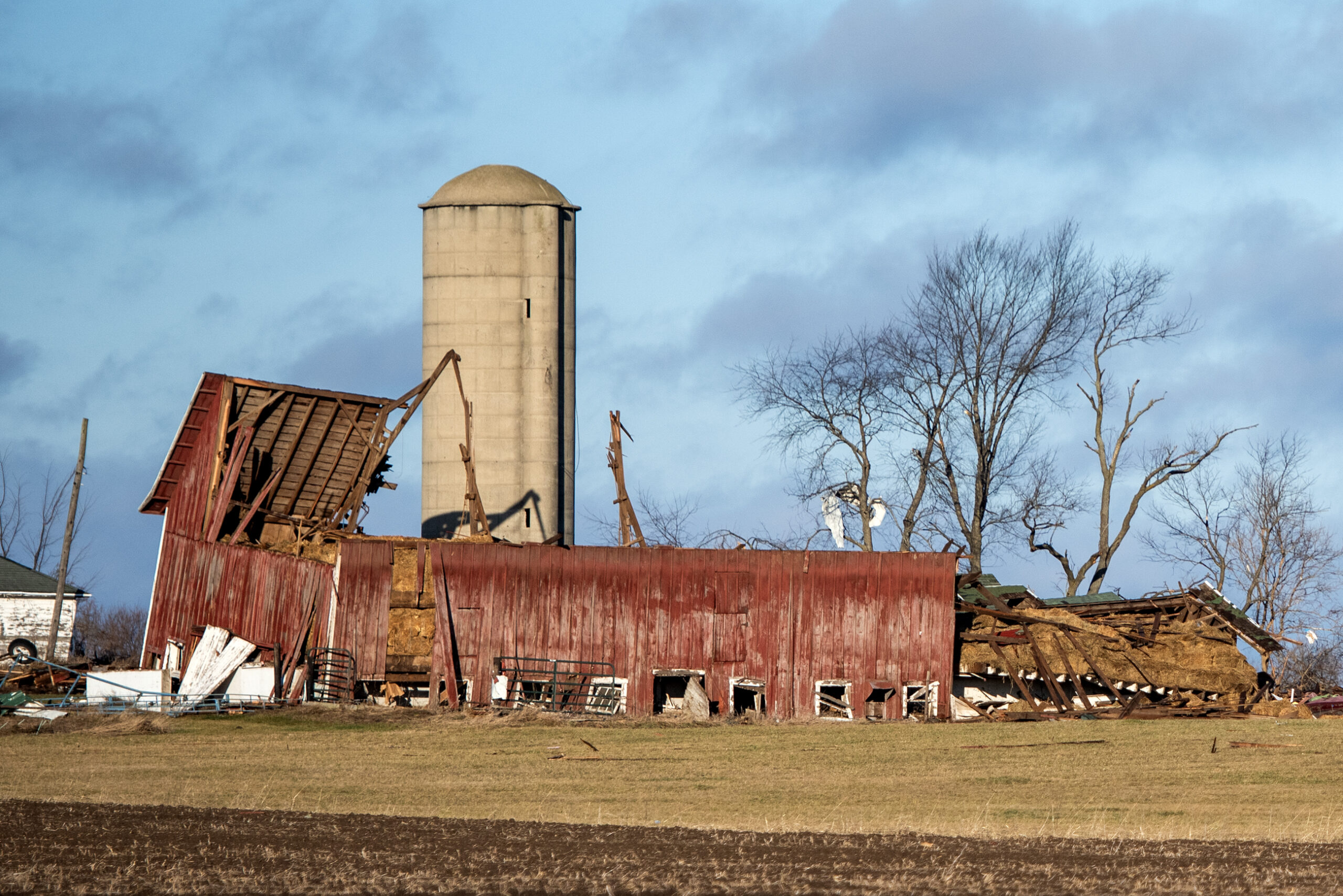
Local officials opened the Evansville Fire Department as a warming shelter, and residents can call 211 to report damage or to be connected with resources. The Evansville Community School District cancelled classes on Friday as residents worked to pick up the pieces.
Eddy Strommen, who lives just south of Evansville, spent Friday morning helping neighbors round up loose cattle.
Strommen’s ranch was untouched, but he said driving around and seeing downed trees and power lines was “very humbling.”
“We’ve got a lot of friends with damage, friends that lost everything — barns, house,” he said. “We’ve never experienced anything like this.”
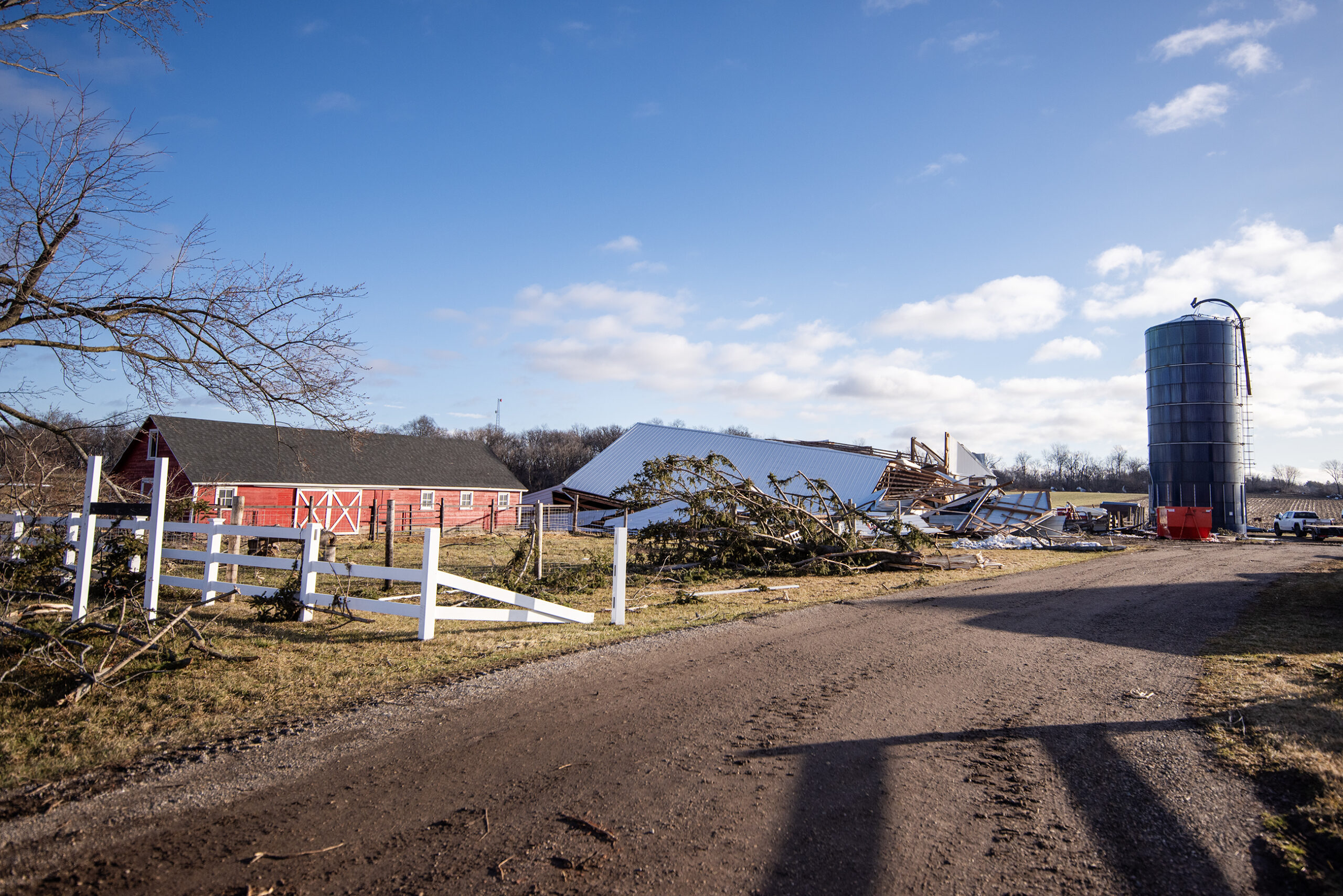
Why February tornadoes are so rare in Wisconsin
In a typical year, the state gets more than 20 tornadoes, according to ReadyWisconsin.
But tornado season in the region usually lasts from April through August. Tornadoes can form from certain types of thunderstorms, when warm, moist air toward the ground mixes with a downdraft of cooler air, creating an unstable spinning vortex.
Those conditions are unusual in February, which is typically one of Wisconsin’s coldest months of the year.
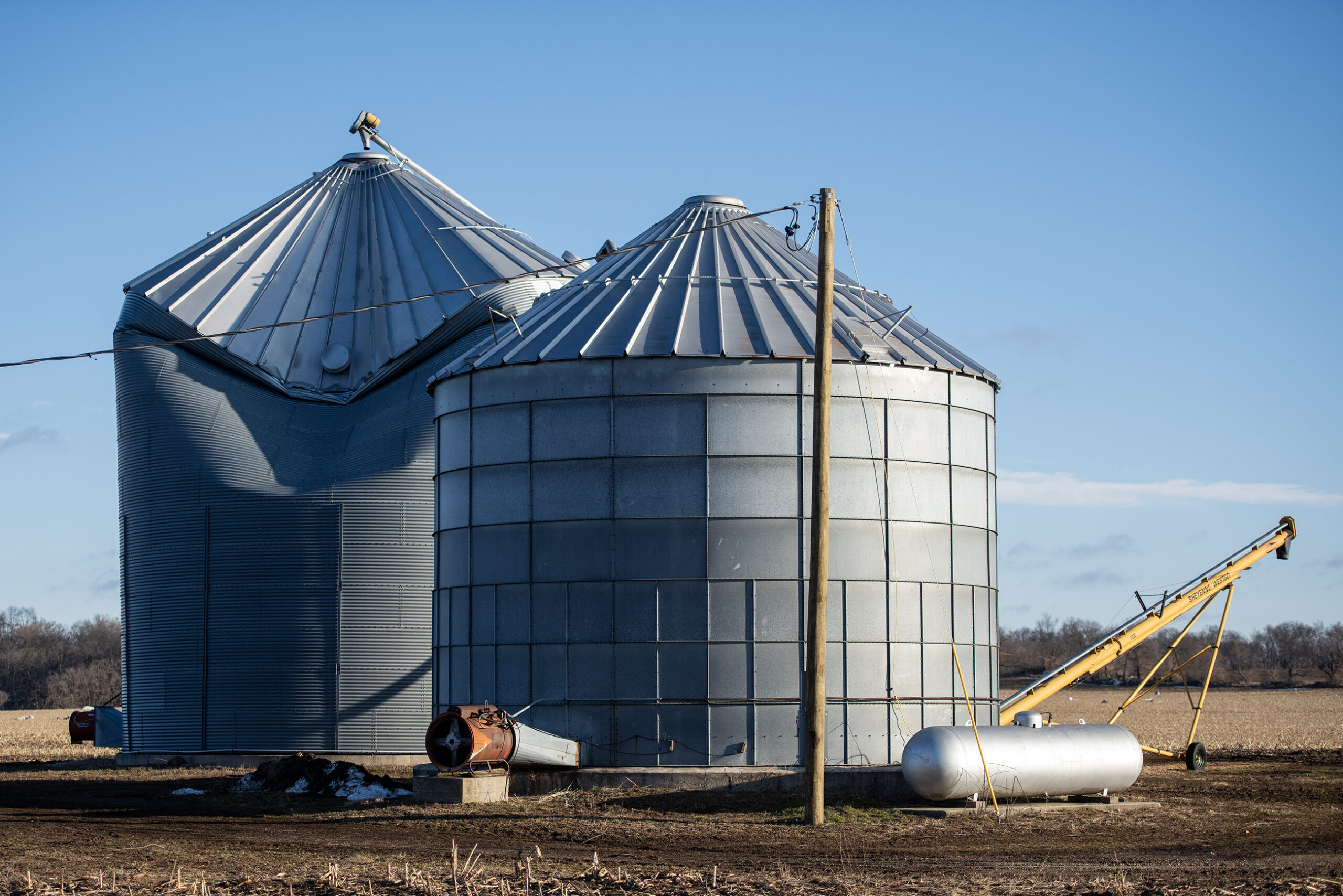
“To get thunderstorms, let alone severe thunderstorms, you’re going to need heat, and you’re going to need moisture,” Patterson said. “With how warm it got yesterday with temperatures in the mid-to-upper-50s, that was essentially a weather pattern that was priming us for thunderstorms, and then severe thunderstorms as well.”
This winter has been unusually warm in Wisconsin, in part because of El Niño, Patterson said. That’s the term for changes to the jet stream that result from warmer temperatures over parts of the Pacific Ocean.
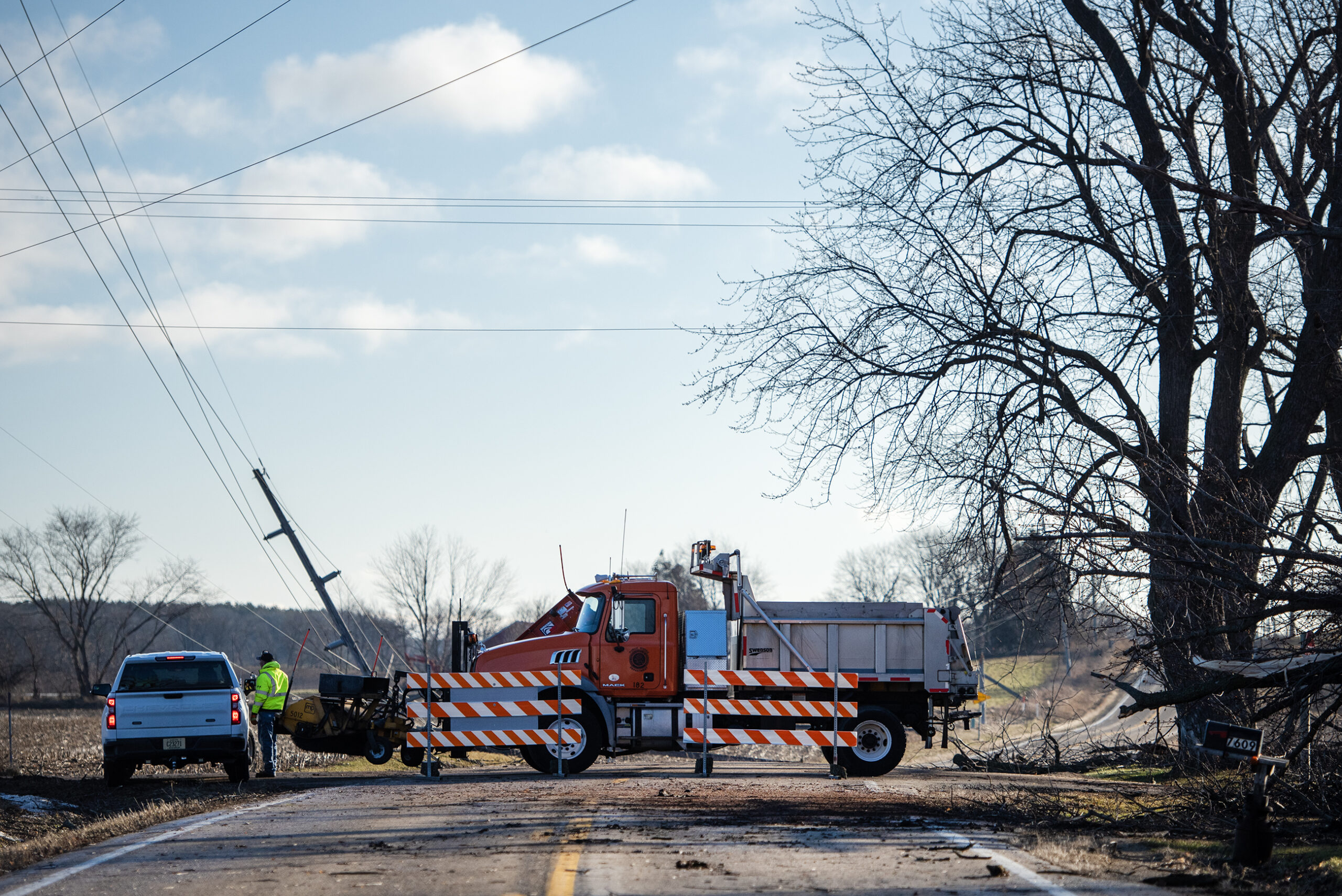
Thursday’s high in Milwaukee reached 59 degrees, which was the warmest temperature ever recorded there by the NWS for Feb. 8.
In Madison, the temperature reached 55 degrees, which was tied for a record high with temperatures last recorded in 1925 according to the NWS.
Wisconsin Public Radio, © Copyright 2025, Board of Regents of the University of Wisconsin System and Wisconsin Educational Communications Board.

